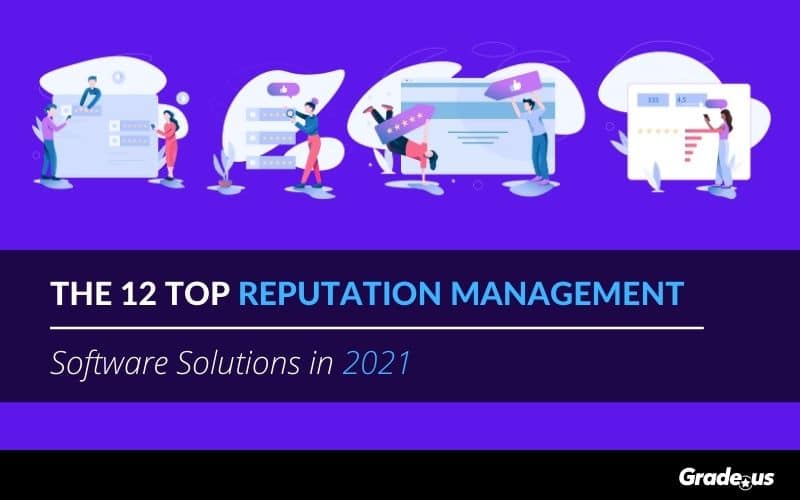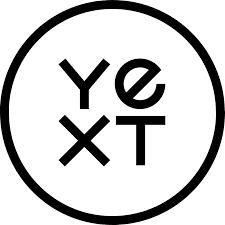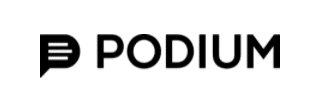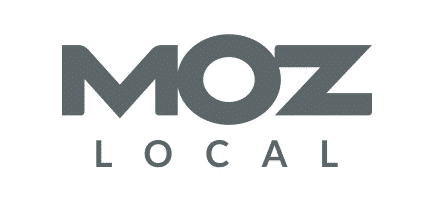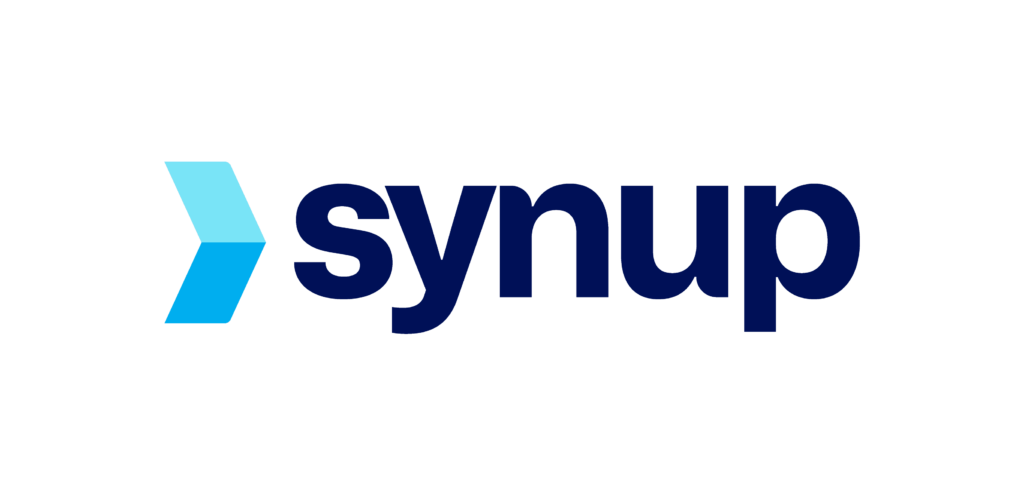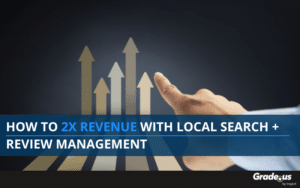Looking for the best reputation management software? You’ve spent hours visiting reputation management software comparison sites like G2, Capttera, and Software advice. You’ve read the reviews. With all of the tools that promise to help you get reviews or monitor your reputation, how do you know what’s best.
When you’ve invested in review management, on the one hand, you’re deciding to proactively generate reviews from your customers to drive loyalty, celebrate your happiest evangelists, and create valuable user generated marketing materials. Alternatively, you’re actively listening to unhappy customers so you can solve their problems, improve your own business, and illuminate a channel of open communicate.
How do reputation management software solutions help?
They provide the tools that allow you to automate review generation, monitor new reviews across the vast review site ecosystem, and share your best reviews on your website and with social media.
Because online reviews and reputation are so important, the SaaS review management landscape has become competitive with a ton of tools that offer a variety of features.
We’ve done our best to put together a comprehensive, in-depth list of the best reputation management platforms for your evaluation in 2021. As businesses open back up and start delivering services again, your reputation has never been more important.
Let’s take a look at the top 12 best reputation management software solutions in 2021.
Table of Contents
Transparent Self-Mention: Grade.us
Grade.us is a bonus alternative on our list. Not ranked, but included since transparently, we offer reputation management software.
Founded in 2013 by Jon Hall, Grade.us blossomed from a startup contender into a major player in the online review space. In 2020, Grade.us joined a newly launched, full suite of digital marketing tools — Traject. Made up of a group of 60+ passionate team members, Traject represents 7 brands, 22 cities, and 11 different countries.
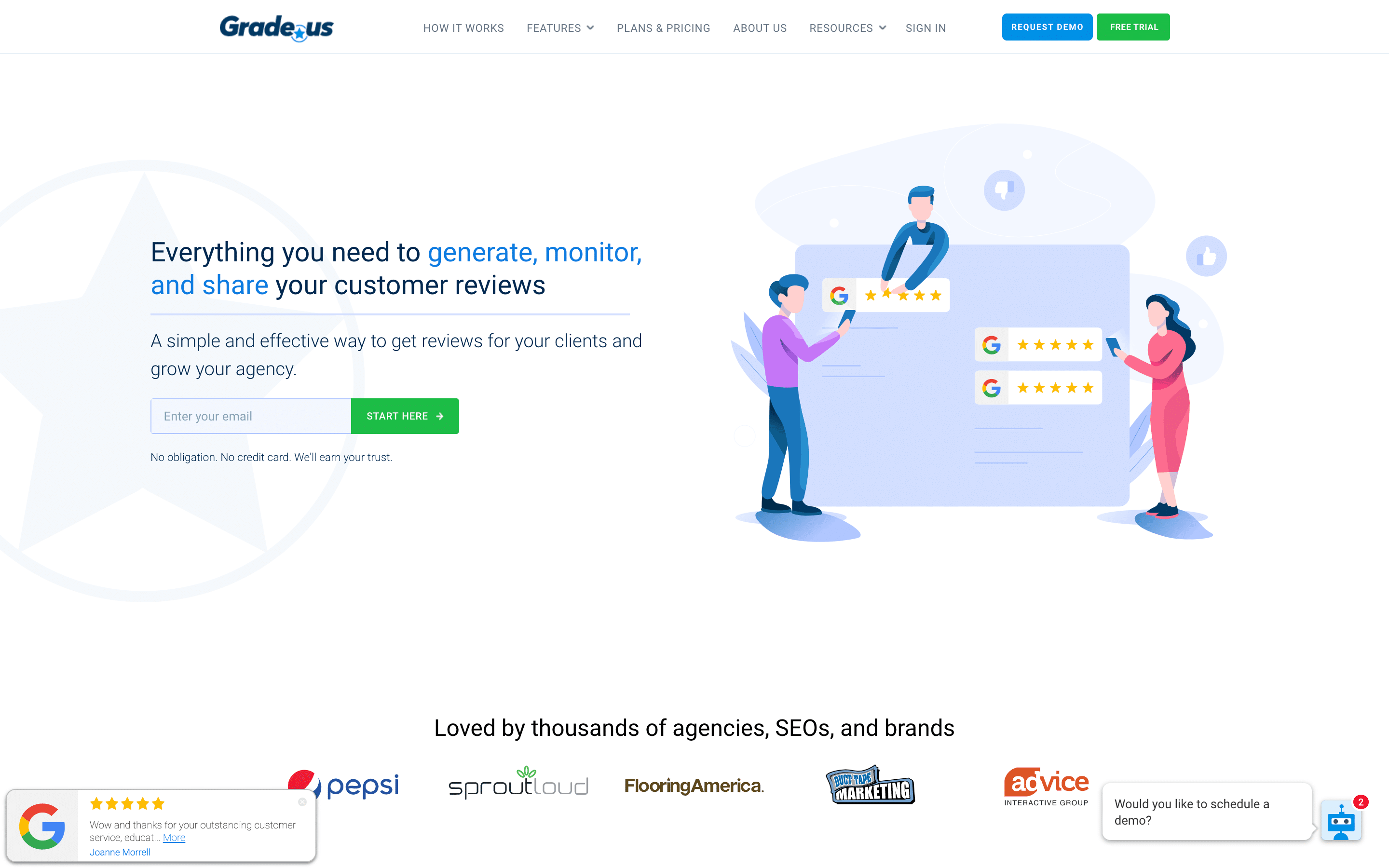
So why is Grade.us on the list?
Full disclosure, we’re going to toot our horn a bit here. As a platform, Grade.us is designed around one thing — helping you get online reviews.
Here’s why Grade.us is so different.
We provide more high-value features than the vast majority of our review management competitors. BirdEye pricing for their entry reviews and listing product is set at $349 per mo. for a single location. Grade.us pricing is set at $180 per mo. and includes three locations. You’d need to spend $1,047 to get the same thing from BirdEye.
Not only that, we are geared primarily to digital marketing agencies. If you’re a regular on our blog, you know that we consistently focus on the importance of reviews to local businesses, how to find review management clients, how to price your services, how to sell review management, and how to provide review management services.
We also develop a ton of marketing collateral, sales assets, and lead gen tools for our agencies to use to close clients.
In fact, we just launched our Local Client Finder lead generation tool to help you build your agency.
What does this mean?
It means we’re prepared to grow with you. We’re all in on you, and we’re serious about boosting your review portfolio.
Take a look at what Grade.us offers.
Now compare that with every other provider we’ve listed in this post. When it comes to reviews, no provider comes close to the kind of value we provide.
Here’s why this matters.
Your review portfolio has a significant impact on every part of your marketing. Your review portfolio (or lack thereof) determines your return on ad spend, conversion rate, even the traffic you receive on your site. You can calculate that for yourself here.
We’re absolutely biased, but we have the data to back it up.
Reviews are a big deal; if you’re serious about generating more business via online reviews, we believe Grade.us is the best solution. We’re so confident that we’re willing to provide you with a genuine free trial. No credit card required, we’ll earn your trust the old fashioned way, with results.
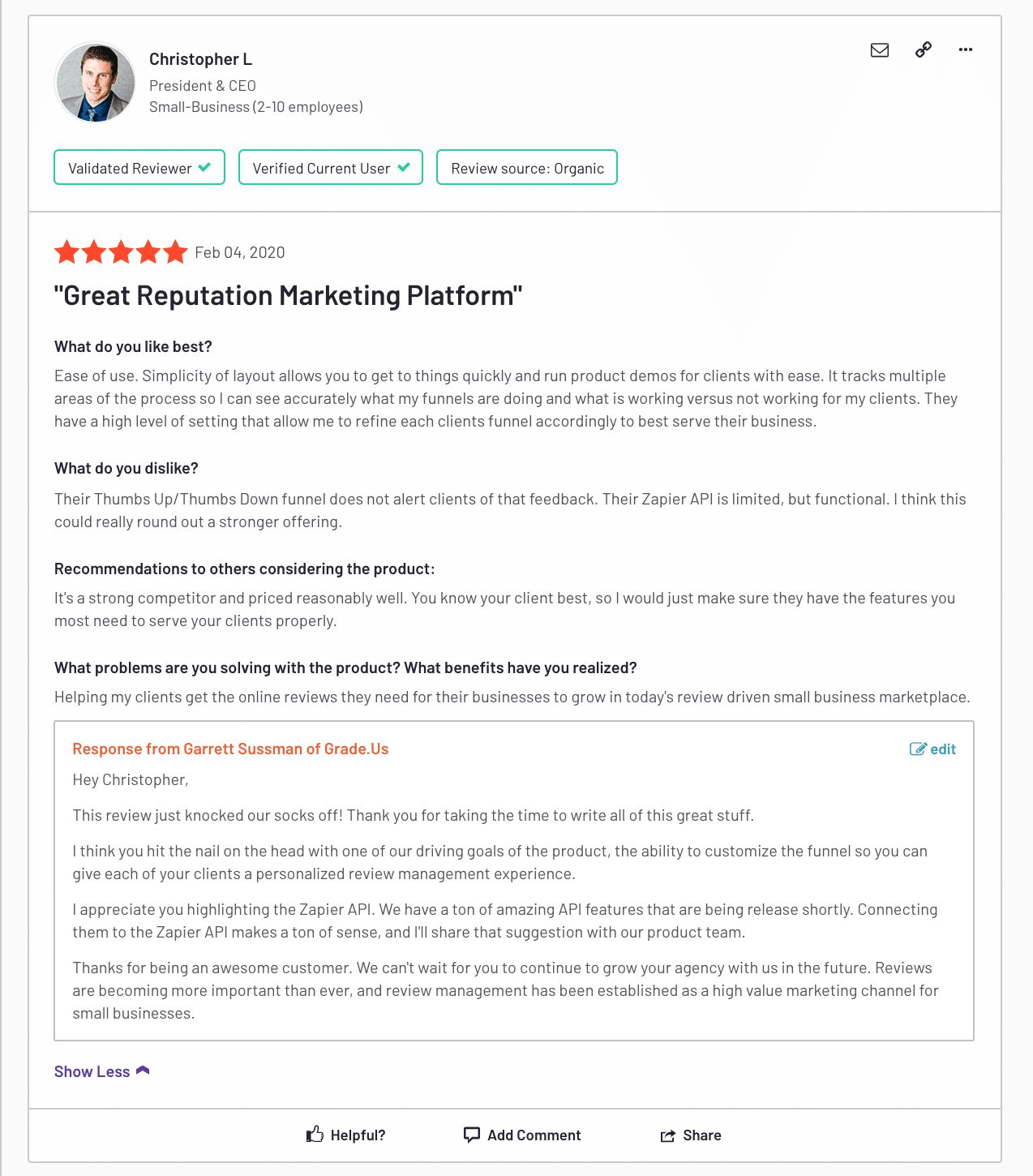
Pros + Cons
We have the standard ORM features — request, respond to, and optimize reviews, etc. Here’s a demo of our platform in action and a list of our platform pros and cons:
Pros
- Generate, manage, and monitor more than 165+ review platforms
- True private/white-label options for agencies and resellers, we even create private-labeled widgets, reports, and whitepapers you can use to grow your business.
- Fully white-labeled options mean you can schedule recurring reports to ship to clients or staff via Web, PDF, and CSV.
- Get review alerts sent as-it-happens or send alerts to clients or staff based on custom criteria.
- Reviews are optimized for local search; control SEO-friendly rich-snippet/schema markup for reviews and aggregate rating.
- Powerful marketing tools enable you to embed, share, and syndicate the reviews you choose for your business, automatically.
- Collect reviews on-location with compliant "kiosk mode."
- Send review requests to customers (or on behalf of your clients) via email, SMS, MMS, and direct mail campaigns.
- Create and customize your own review funnel, via custom landing pages.
- Collect reviews anywhere online via customizable widgets.
- Bulk upload review recipients for your review management campaigns.
- Manage listings in your account automatically.
- Create and customize multi-channel auto-request campaigns to maximize the reviews you receive.
- Integrate with CRM, POS, and other systems through the API.
- We offer both a fully-featured API and a fully-featured, white-labeled API something most of our competitors aren't offering.*
- Integrates single sign-on (SSO) from other applications.
- Our free trials are truly risk-free — no credit cards required, no obligations, or lengthy contracts you're locked into, we'll earn your trust.
Cons
- We're top-heavy, we went all-in on reviews, so we're focused on reviews.
- Our review platform is optimized for local businesses, but we haven't spent as significant an amount of time on local listings as other providers have, despite offering listings monitoring features.
- We don't have a native mobile app, and it's not currently on our development roadmap (our web app is fully responsive and optimized for mobile though).
- We don't currently offer 24/7/365 support like some of our competitors.
- We're not integrated with all of the apps and services many of our competitors are, yet.
- We're only partially integrated with Zapier.
Here’s why our “Cons” are actually strengths.
Grade.us is part of Traject — this means you have ready access to the tools and resources you need.
- Need comprehensive data analysis and Big Data integrations? Traject Data has you covered.
- Need local search data or access to the “Not Provided keywords” Google refuses to share with you? AuthorityLabs gives you everything you need.
- Monitoring social media campaigns? Traject Social gives you A to Z coverage.
- Looking for a simple data analysis dashboard you can use to present agency-branded data to your clients? Start with Cyfe.
My point with all of this?
Grade.us is part of a suite of tools now. The tools above give you the comprehensive support you need to get what you need done. You could purchase all of the tools Traject offers and still come in under BirdEye’s three location pricing.
This means you have options; you really can get more for less.
GatherUp
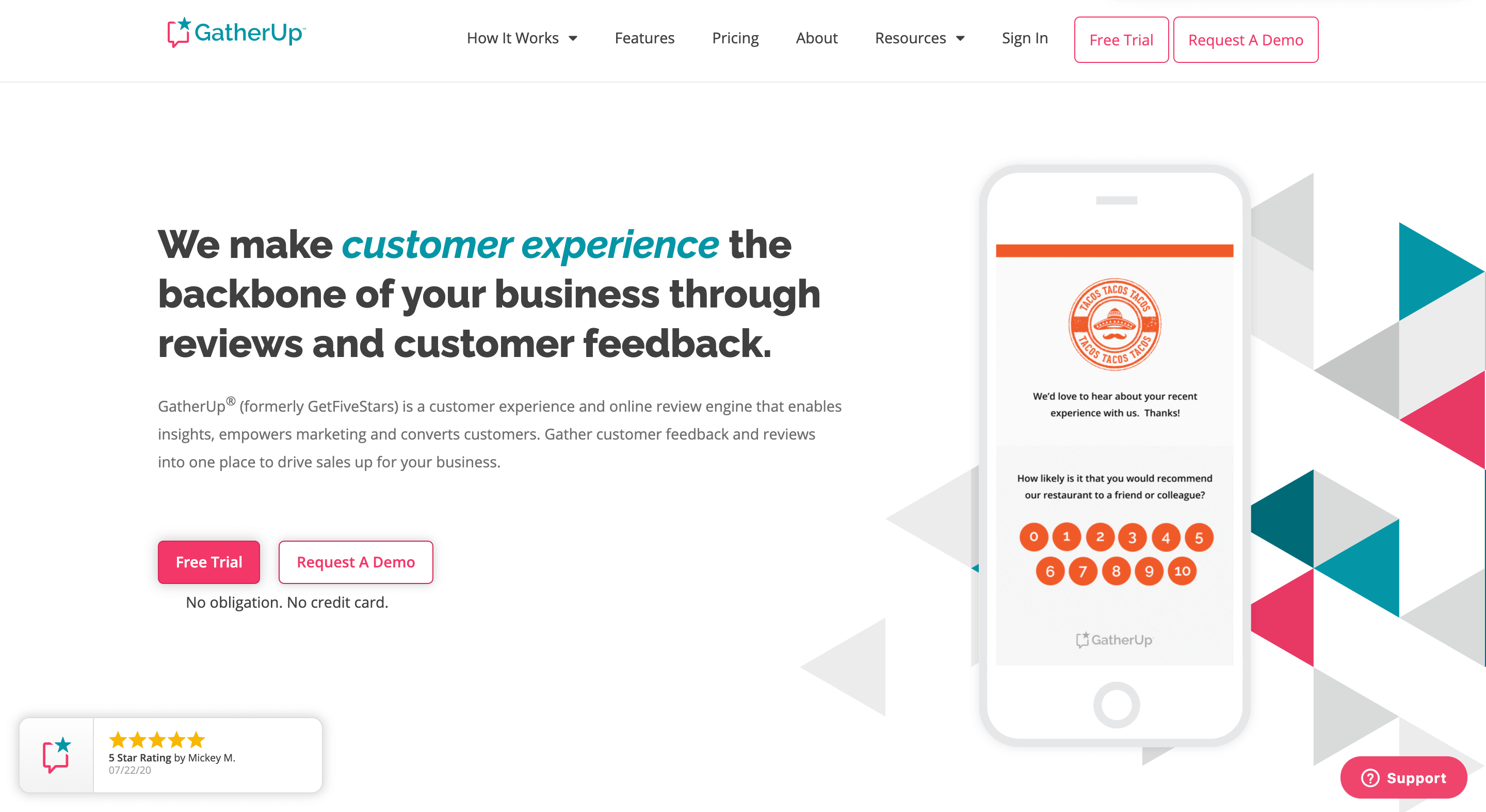
GatherUp was founded as GetFiveStars in 2013 by local search marketers Mike Blumenthal, Don Campbell, and Thomas Hasch. GatherUp is an online review management and customer service platform that’s geared towards growing businesses regardless of their size.
The GatherUp team has a deep background in search engine optimization (SEO), digital marketing, and traditional marketing. These co-founders understand the significant impact local search and online review management (ORM) can have on a small business.
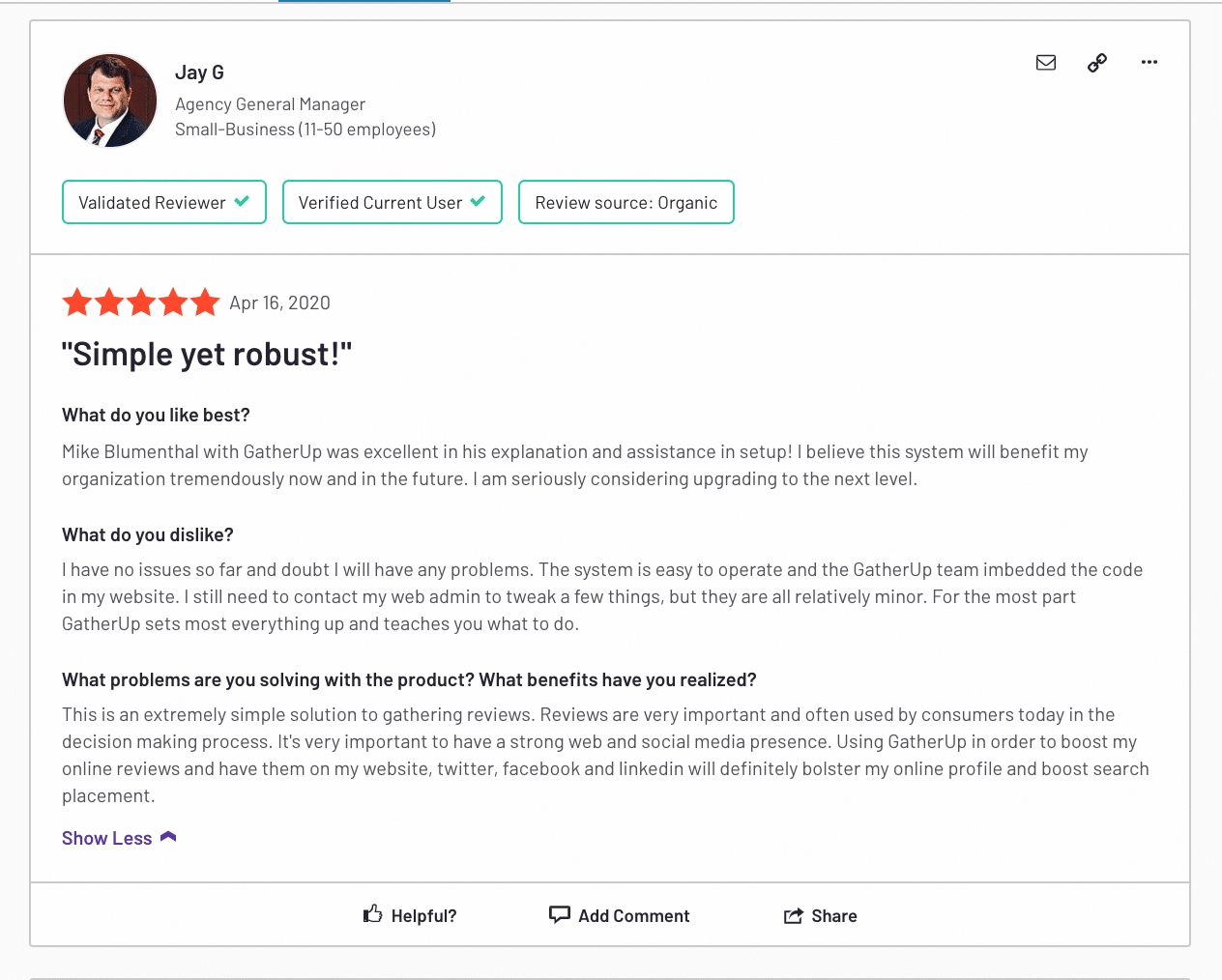
Pros + Cons
What makes GatherUp so different? Their platform is geared around the customer experience. Other platforms are focused exclusively on a specific set of features. GatherUp approaches things a bit differently; they release features at a brisk pace, but they tie everything back to the customer experience.
They’re obsessed with the customer experience, doing everything they can to take care of their customers so that they can pay it forward.
Take a look.
Here’s marketing agency YDOP discussing why they love GatherUp.
GatherUp has the standard ORM and CX features — request and respond to reviews, monitor listings, send and receive surveys, manage customer feedback and support, etc. Here’s a list of their platform pros and cons:
Pros
- Point-of-sale (POS) and kiosk support mean you’re able to integrate your products and services into your business fully.
- Outbound SMS requests enable you to send review requests directly to your customer’s smartphone or mobile device.
- Automated review requests and reminders give customers the follow up needed to increase request conversion rates.
- Request both first and third party reviews provide brands with the tools required to build their review portfolio consistently.
- Multiple request modes. Ultimate mode enables you to capture detailed information from customers (e.g., Net Promoter Scores, optional survey questions, first-party reviews, and third party reviews — all from the same customer. Review request mode enables you to capture the Net Promoter Score and third party review from your customer. Direct request mode enables you to capture third party reviews from customers.
- Public and private review response. GatherUp allows you the option to respond to your customers either publicly or privately. If you choose private, your answer is only emailed to them and then saved in their customer profile. If you choose to respond publicly, your reply is posted to the Review Widget on your website, emailed to the customer, and saved to their profile.
- Net promoter scores.
- Customer activity dashboards provide you with customer activity at a glance, giving you a high-level view of the activity in your account.
- Auto-tagging. Tags help you organize and identify themes in feedback and can be used with Tag Widget to push select reviews to specific pages of your website.
- Brand and account-level reporting.
- Reporting at the state, region, or location level provides you with comprehensive data you can use to drill deep. See which platforms, products, or services are performing best at a specific level, area, or region.
- White labeling for agencies. Agencies can use GatherUp’s comprehensive platform to improve their client’s customer experience scores.
- Reporting API provides agencies, enterprises, and professional marketers with the flexibility they need to integrate their data into other platforms and services seamlessly.
Cons
- Features are released rapidly; this can be difficult for customers to keep up with if they don't have onboarding (The good news? The GatherUp crew provides monthly webinars to onboard, teach, and support regularly.)
- GatherUp provides customers with an incredible amount of customizable features. Customers say this requires training and support before they feel comfortable with the dashboard.
Reputation.com

Reputation.com was initially founded as Reputation Defender, by review and reputation management pioneer Michael Fertik. Their platform focuses primarily on enterprise clients. The company serves industries, including healthcare, hospitality, retail, automotive, restaurants, and property management.
Reports list approximately 750 enterprise customers, including Banner Health, BMW, Ford Motor Company, Hertz, General Motors, Sutter Health, and US Bank.
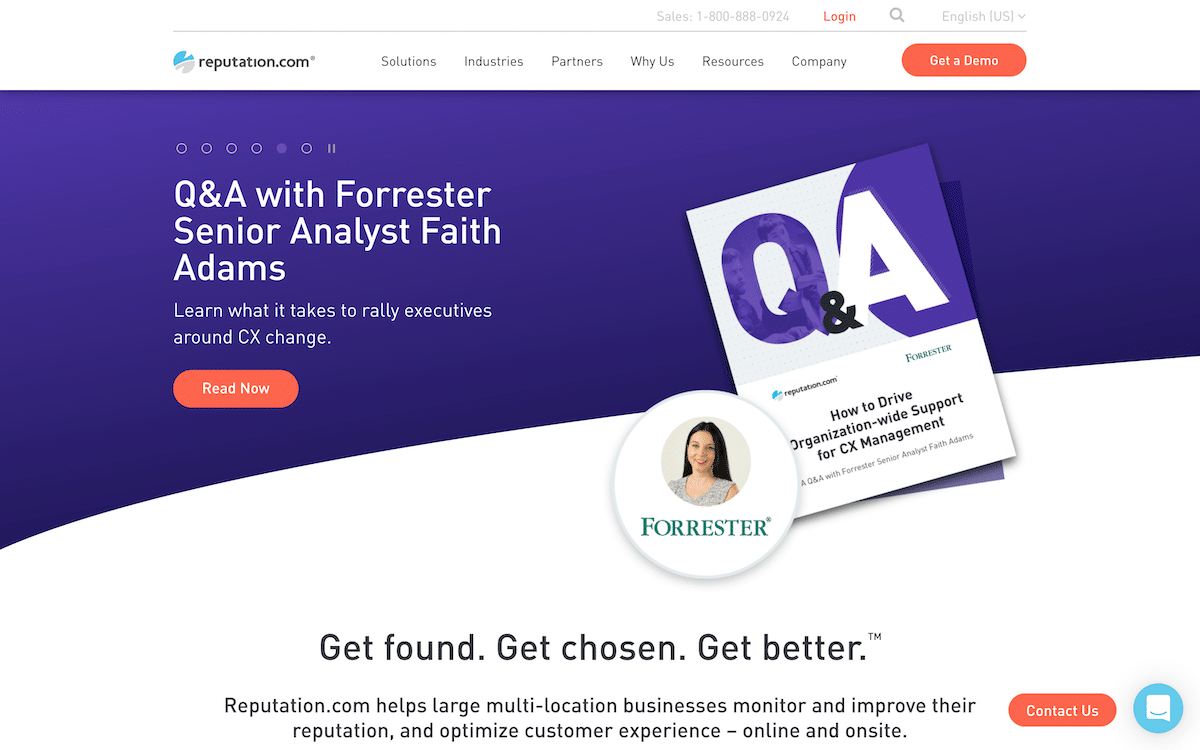
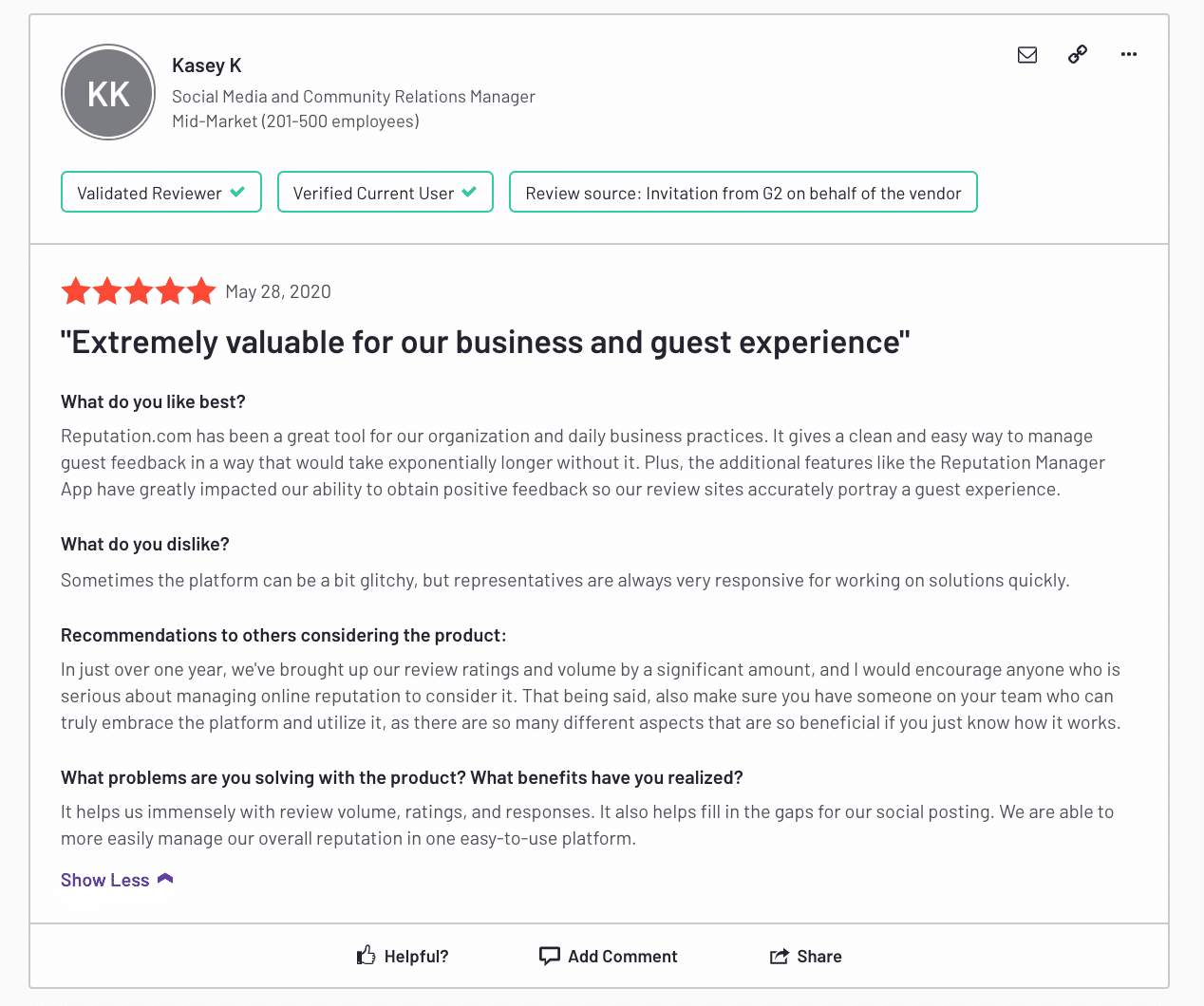
Pros + Cons
Their platform gives brands a detailed overview of their business and the granular details needed to get a deeper dive from the data. Here’s a brief look at their platform and the functionality they provide.
They have the standard ORM and CX features — request and respond to reviews, monitor listings, send out surveys, manage customer feedback and support, etc. Here’s a list of their platform pros and cons:
Pros
- Helpful tools for work at scale. Reputation.com offers response and communication templates, called macros to request and reply to reviews, respond to customer complaints.
- Manage listings data at scale and in real-time to verify accuracy, the name, address, phone, and location data for multiple locations, on multiple review and listings platforms (e.g., Google My Business, Yelp, Healthgrades, etc.).
- In-store functionality enables brands to capture in-store reviews and customer feedback directly at each location via a customer kiosk.
- Integrates with 1000+ SaaS brands and services directly.
Cons
- Instant fit or incompatible. Reputation.com's platform is oriented around specific industries, products, and services. If your business is outside their wheelhouse, their product may not be what you're looking for.
- Unclear price. This is appropriate since they're focused on the enterprise. These customers are looking for a solution that's customized around their needs.
- Not for SMBs. Solo, small and medium businesses outside of their verticals aren't going to be well served by their platform.
- Built for scale. The platform is built for scale, so there's a strong reliance on templates, providing curated content for your locations to share in one click, and mass communication making personalization a difficult outcome to achieve.
- API status is unclear or unknown.
Yext
Yext is a publicly-traded online brand management platform. They originally got their start in 2006 as a local advertising business. They pivoted in 2009, shifting their focus to lead generation via a pay-per-call business model. They would pivot again, selling their pay-per-call business to IAC in 2012.
Their platform leans heavily towards local listings.
Interestingly, they’ve added what they call their “knowledge network” and incorporated their knowledge graph product, working to optimize customer platforms for Google’s knowledge graph.
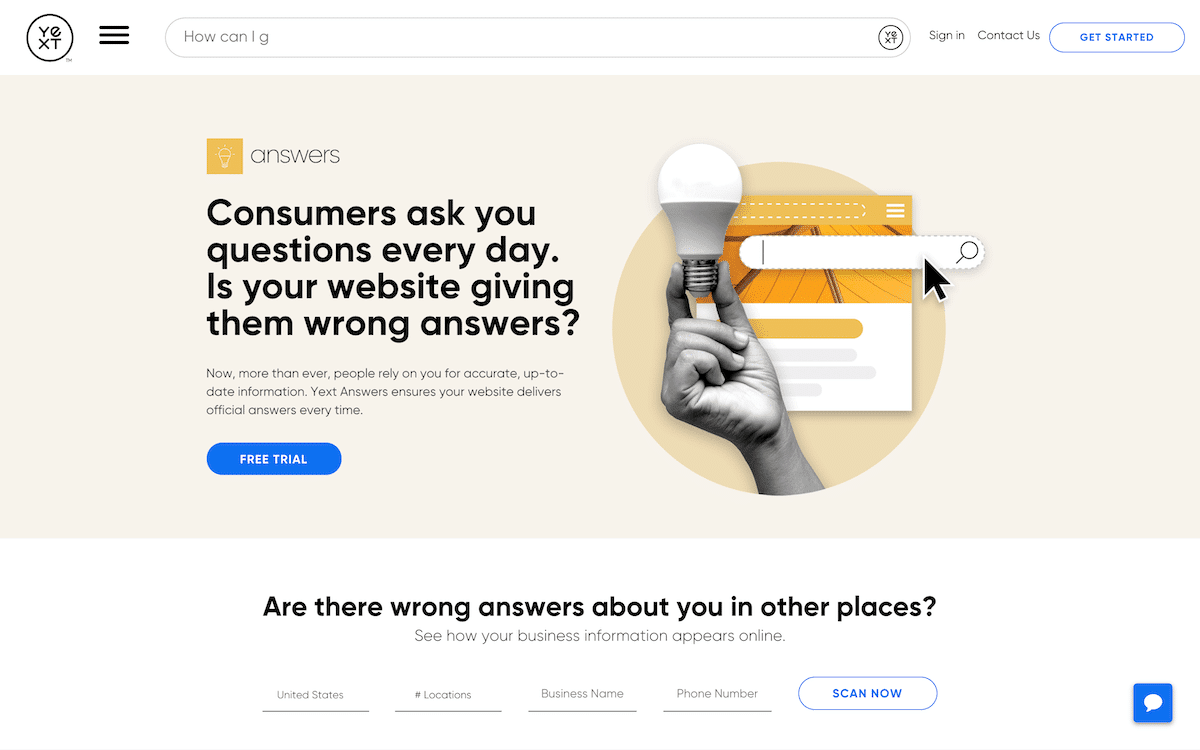
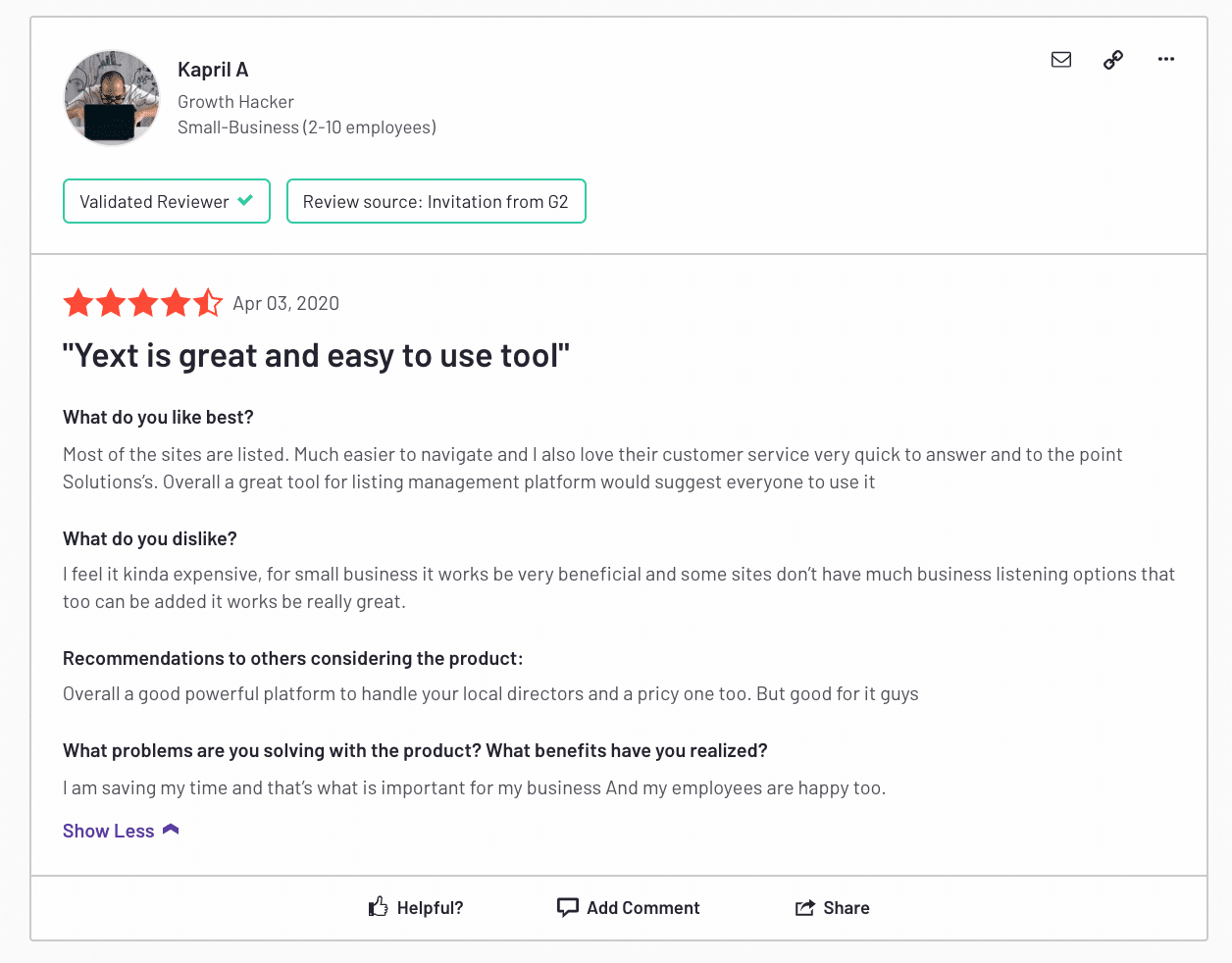
Pros + Cons
If your business is location specific or you rely disproportionately on local search as an avenue to generate leads and sales, Yext may be a good fit for you. Here’s a list of their platform pros and cons:
Pros
- The Yext submission process is fast and efficient. You can add/update listings via Yext in 72 hours or less. Their platform uses automatic distribution, add your business data once then it’s syndicated across local citation sources.
- Great for brands that need to update their listings regularly. Yext’s primary focus is syncing local business data, something most of its competitors do as well.
- Local analytics provides you with precise data — how your listings appear in search results and the number of impressions and clicks your listings receive. This isn’t all that beneficial though when you realize Google’s Search Console provides you with queries, impressions, clicks, average position in search results, and CTR.
Cons
- Listings are removed if you cancel. This is a severe downside that most brands aren't familiar with when they join their platform. Signing up means you're locked in with Yext. If you cancel all of your listings go back to the way they were pre-Yext. The prospect of losing all of your hard work may be a potential deal-breaker for many brands.
- Listings sites are incomplete. Customers are locked into Yext's submission network. This is unfortunate as they have a small number of citation sites (YP.com, CitySearch, BBB, etc.) in their network.
- Their core features aren't as mature as they could be. Yext focuses on all things local, so it's surprising to note that there's no local rank tracking and limited API support (so you can't integrate their platform with another service like AuthorityLabs).
- Their review platform seems to be an afterthought. As far as reviews are concerned, Yext's offering is a bare-bones option for review management. Yext review monitoring is minimal — they monitor a fraction of the review sites tracked by their competitors, and they emphasize first-party reviews (reviews on your site) rather than third party reviews (via Google Reviews or Yelp). Their sweet spots are local listings, citations, local search, and optimizing local visibility.
- No white labeling. If you're running an agency, working with Yext means you're an open book. All Yext reports include Yext branding, so it won't be a secret to agency clients.
Yotpo
Yotpo is a retail marketing platform. Founded in 2011, this VC backed platform has a large following of customers, in a variety of industries. They serve businesses of all sizes from SMBs to the Enterprise. The common thread with Yotpo is its focus on ecommerce.
As a company, Yotpo has more than 200,000 customers and 400+ employees, with a variety of large well-known customers, including GoPro, Everlast, Esurance, and Adore Me.
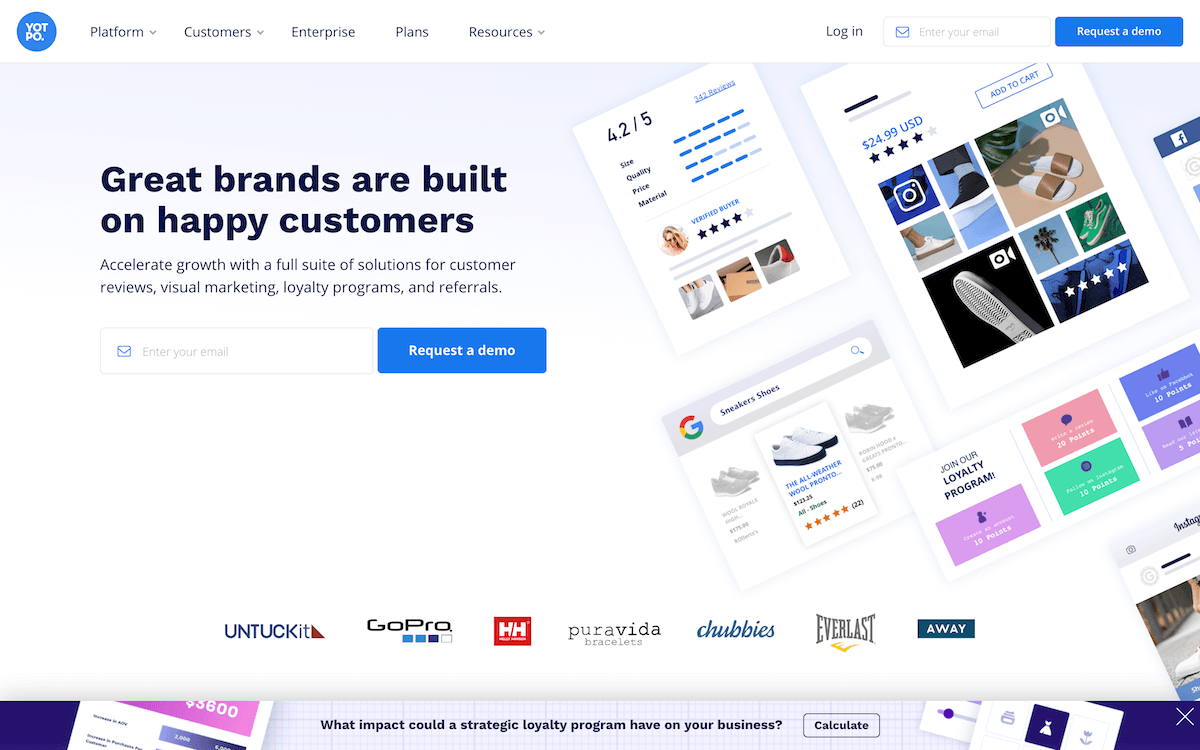
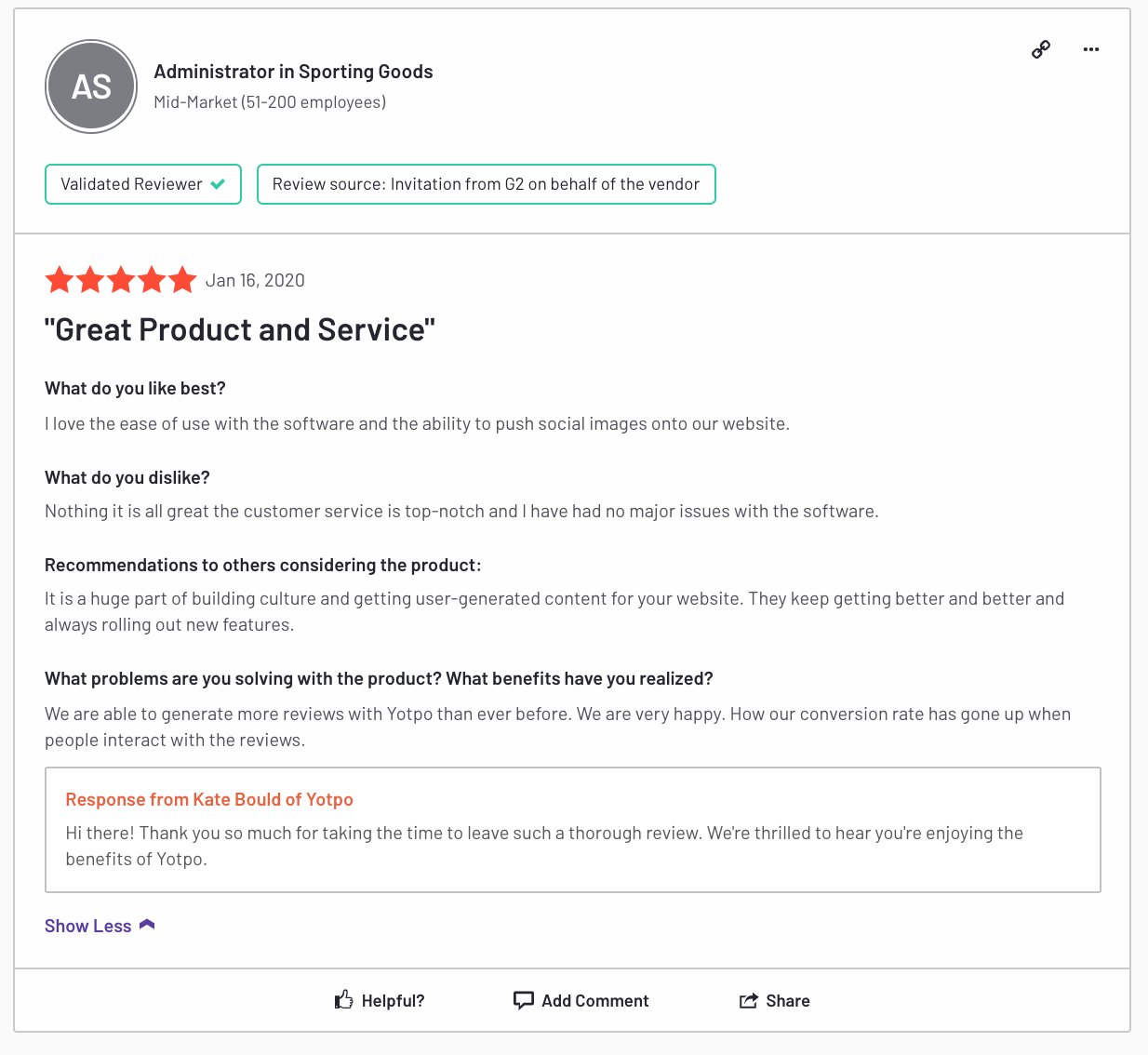
Pros + Cons
When it comes to retail, Yotpo knows their stuff. Their platforms are heavily focused on the visual and review aspects retailers, and eCommerce brands need. Yotpo has the standard ORM and CX features; here’s a list of their platform pros and cons.
Pros
- Yotpo offers a free plan that's fully featured and viable for small businesses and growing, single location brands. Features include product and site reviews, smart review reminders, manual review requests, review badges, review commenting, coupons, upsells, and more.
- Outstanding customer service. The overall sentiment is positive for Yotpo. Most customers, whether they are happy or disappointed with their platform, come away with the feeling that Yotpo cares about their business.
- Robust integration with apps you're familiar with, including Salesforce, Shopify, Google, Facebook, Instagram, Pinterest, Bronto, Zendesk, and more.
- Clear API documentation, which may be particularly attractive for Enterprise customers and agencies.
Cons
- Tiered pricing means the more orders your retail business has, the more expensive Yotpo is. It’s an unpleasant component of retail; third-party providers use tiered pricing to boost their revenues without providing additional value. Many users complain about how expensive/overpriced the product is.
- May require an annual contract. Some users are disappointed that Yotpo requires a commitment, especially those who failed to achieve a return on their investment.
- Review censorship. A Yotpo reader stated, “The biggest downfall of this software is that you can choose to not publish negative reviews. While that may be seen as a benefit for businesses, it removes all credibility and will damage your reputation.” Yotpo offers a valid counterpoint stating that this is to manage abusive, inappropriate, or poorly written reviews.
- Customer onboarding needs work. Several customers said they failed to achieve any measurable return on investment for the product, which is extraordinarily painful for retailers due to Yotpo’s tiered pricing.
Podium
Podium, known initially as RepDrive, is a customer interaction management platform designed for local businesses and founded in 2014 by Eric Rea and Dennis Steele. They’re a VC backed company and Y Combinator alum. They’ve raised $217 million in funding to date.
Podium serves 40K business, powering 17 million customer interactions, for more than 1 in 4 phones. They’re focused on managing interactions from “search to sold.”
Podium’s payment option makes them unique.
This gives customer support teams more power than they’re used to — your team can process payments, issue refunds, handle various customer payment methods, and maintain PCI compliance. This requires careful procedures so that support teams can manage their newfound power appropriately.
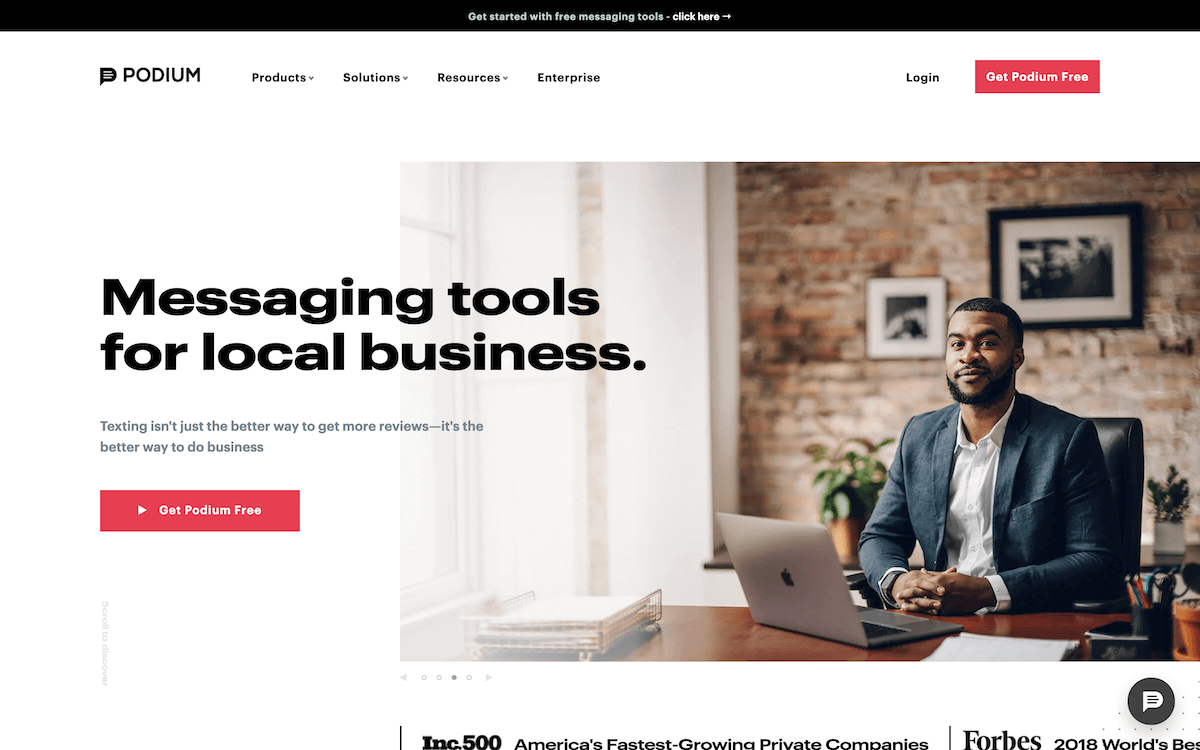
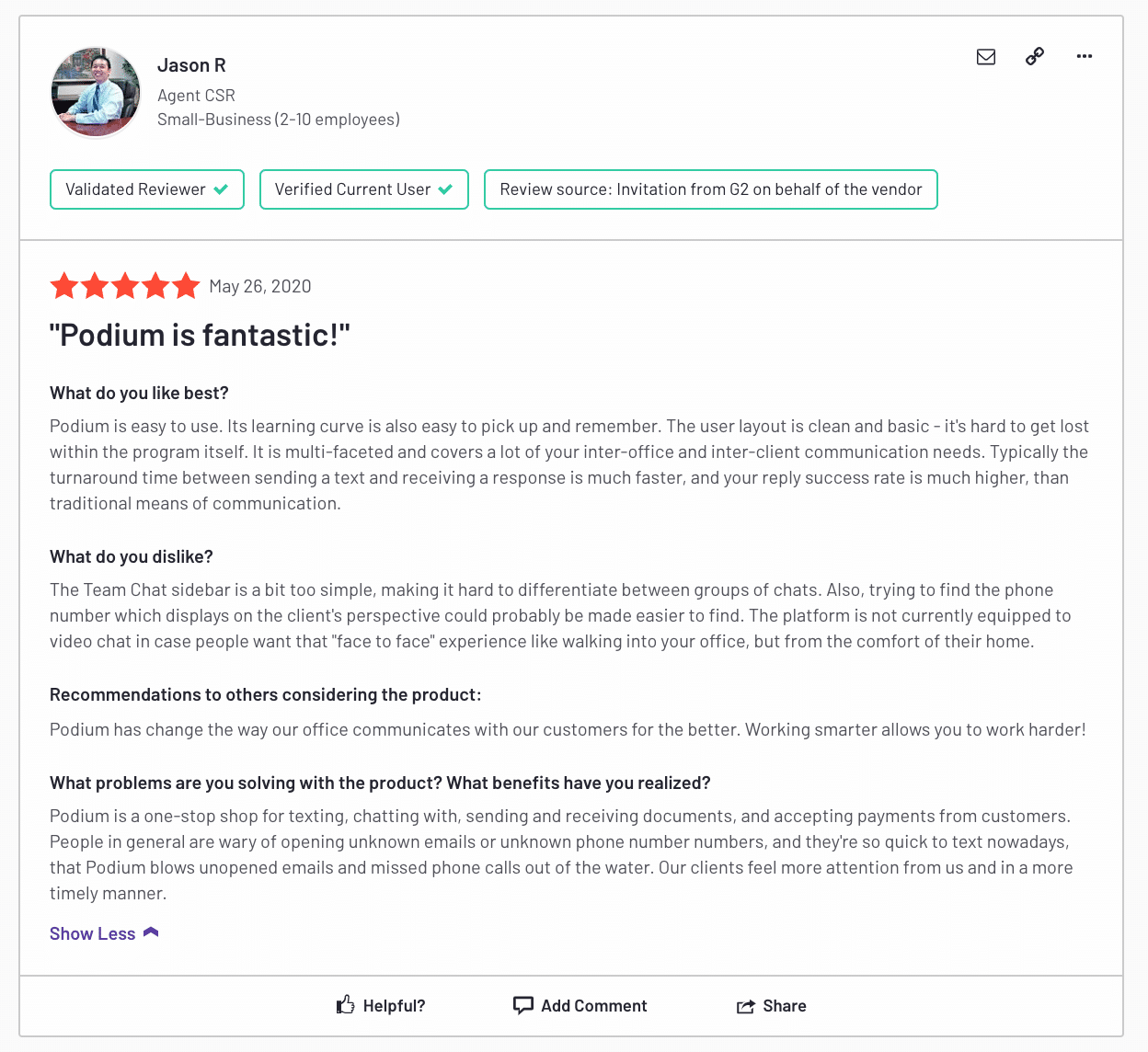
Pros + Cons
As you’d expect, Podium has the standard ORM and CX features — request and respond to reviews, surveys, manage customer feedback and support, webchat, team chat and inbox. Here’s a brief breakdown of their platform pros and cons:
Pros
- Their platform provides two-way texting with customers; webchat also comes with customizable branding and images.
- Brands can receive payment directly via text message.
- Fast reviews. Customers can share a Google review in two clicks.
- The Podium mobile app allows brand managers and customer support teams to manage customer conversations at any time.
- Each Podium account is assigned a client success manager, onboarding, customer support, and customer success are easy to achieve.
- Users can set recurring review goals as a way to direct their teams internally.
Cons
- Podium doesn't include local/business listings management.
- Their survey product (Feedback) is more limited in scope than other competitors.
- Webchat conversations need to be managed/handled via SMS messages.
- Requires an annual contract for new customers.
- Webchat is an additional $100 per mo.
- Entry cost is high ($399) and increases from there. The good news is that each account comes with an account manager who's willing to work with customers to achieve success.
BirdEye
BirdEye bills its app as a customer experience platform.
They offer customers a variety of customer experience tools ranging from local listings, review management, customer surveys, ticketing, chat, insights, and benchmarking. BirdEye has fantastic features, but is their platform the best for your business?
As it turns out, BirdEye comes with some unpleasant downsides.
For starters, there’s the price; BirdEye’s listings and review product has a monthly fee of $349 ($3,588 annually) for their entry product and $449 ($4,788 annually). That’s for a single location! Customers report there are issues with onboarding and customer service, and billing.
Is it worth that for you?
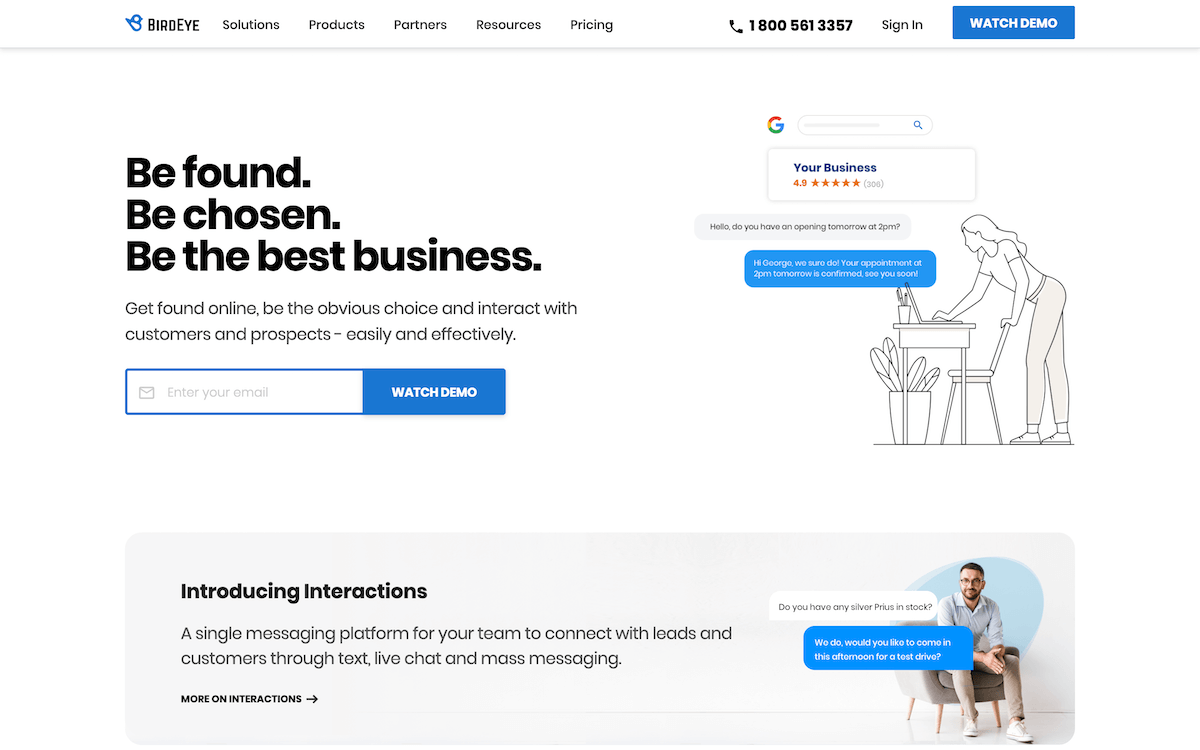
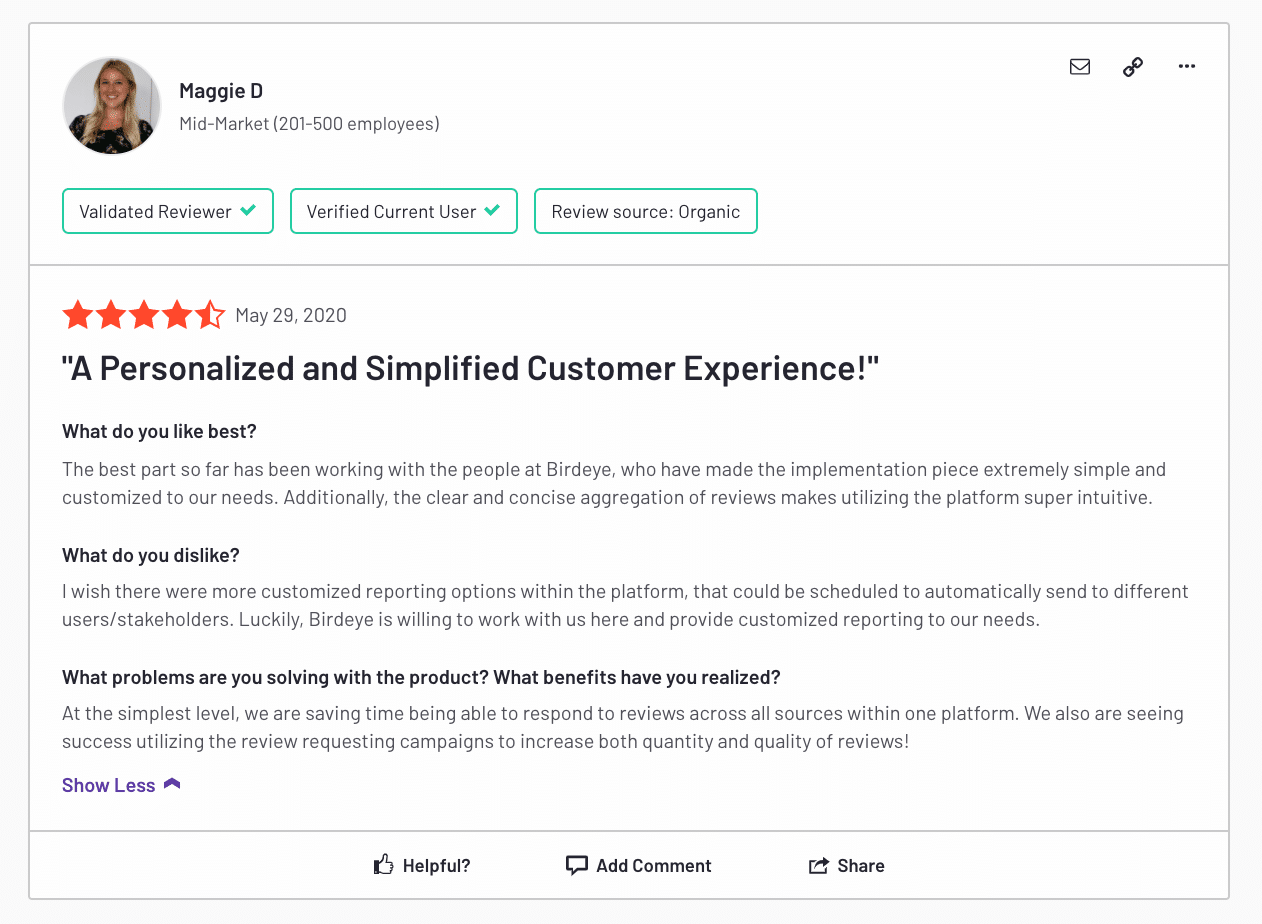
Moz Local
Moz needs no introduction.
If you’re an experienced SEO, you know their reputation precedes them. Rand Fishkin is an industry pioneer, and Moz is the company that grew out of Fishkin’s efforts. As the name suggests, Moz Local is focused primarily on local search listings.
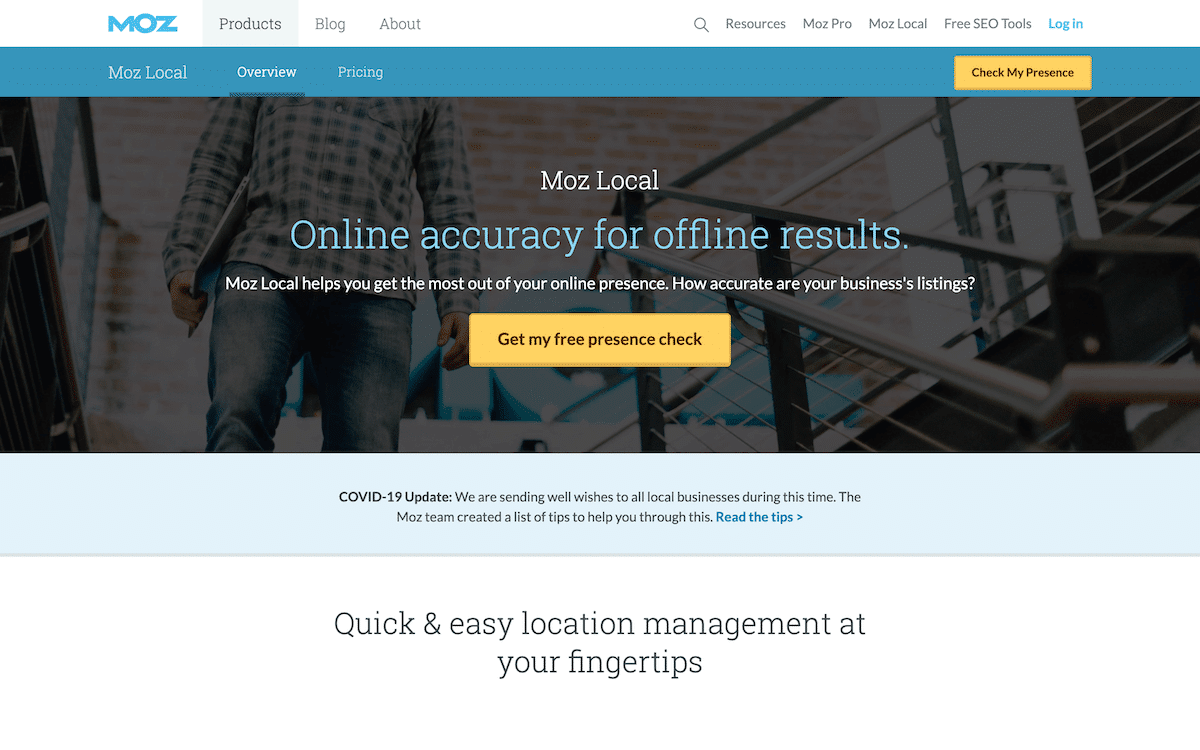
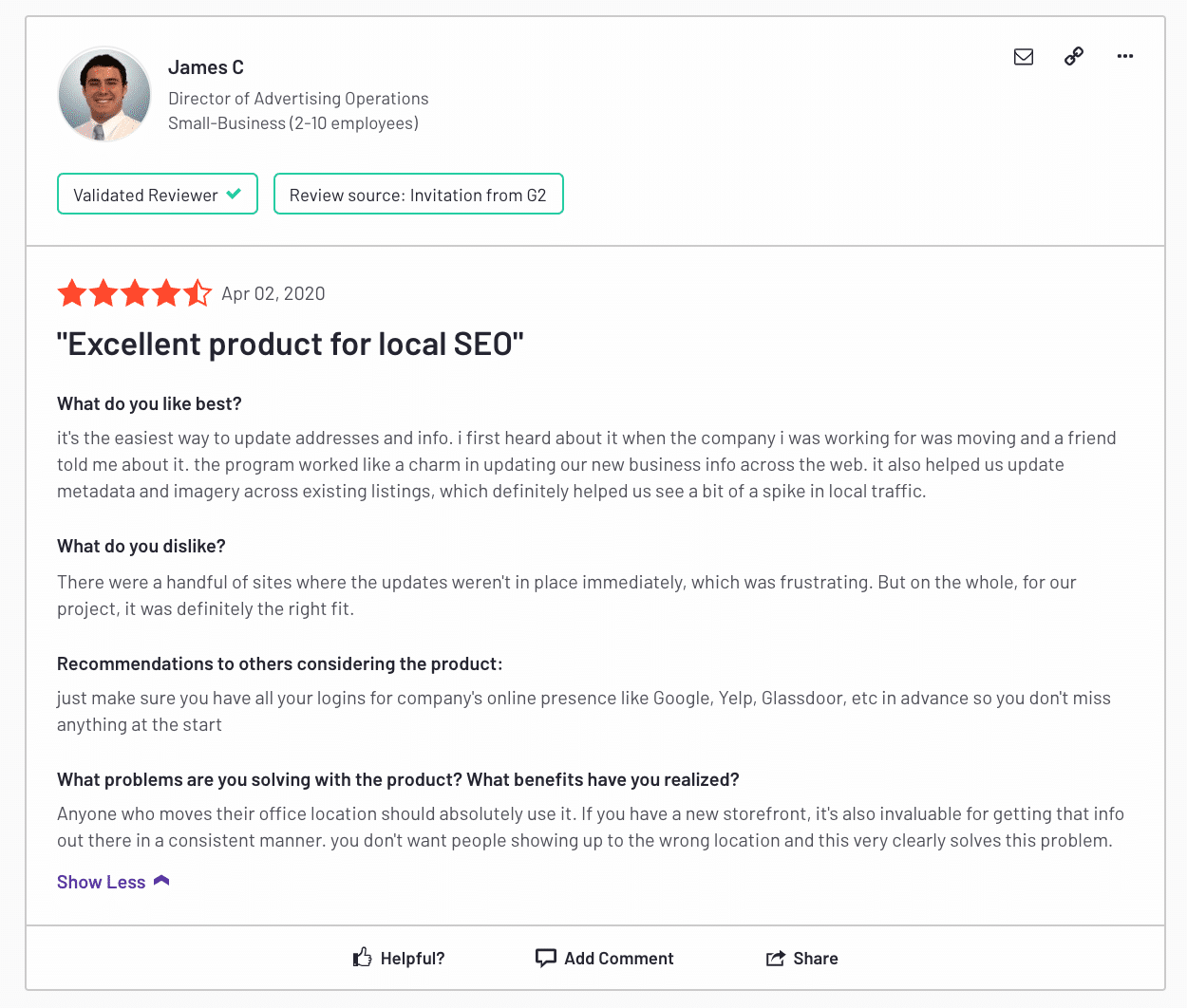
Pros + Cons
Moz Local’s listings service is excellent but it’s not as fully featured as the other providers in our list. Here’s a brief demo showing how the Moz Local platform works.
Pros
- Manage multiple local search listings in one intuitive dashboard.
- Track and automatically manage duplicate local listings.
- Supported by a knowledgeable, well-trained team.
- An inexpensive option for brands that don't have much to spend.
Cons
- Local updates, when managed through aggregators, can take 2 to 3 months to update.
- No white-label options for agencies or media companies.
- Recurring fee, failure to pay means data may be reverted to pre-Moz updates.
- Moz relies on an aggregator only approach to listings management, so they submit to a smaller number of sites.
- Review management and monitoring are barebones; there's no review marketing tools, no autoresponder sequences, or automated review requests.
- In Moz Local, you can track and respond to reviews, share reviews and promotions via social outlets, and sort reviews.
- Difficult to scale review management with the limited number of features available in their platform.
Thryv
Thryv, formerly DexYP, is a business-in-a-box solution for local businesses. They originally got their start selling phone books! In 2014 Thryv published 1,700 white and yellow page directories. Thryv struggled to make the transition from print to the web; in 2016, they filed for Chapter 11 Bankruptcy, their third bankruptcy in less than ten years.
They’ve developed strong partnerships with several large providers; they’re a Google Premier Partner, Yahoo Preferred Partner, an MSN Elite Bing Ads Partner with additional partnerships with Facebook, YP, Yext, EZLocal.com, and others.
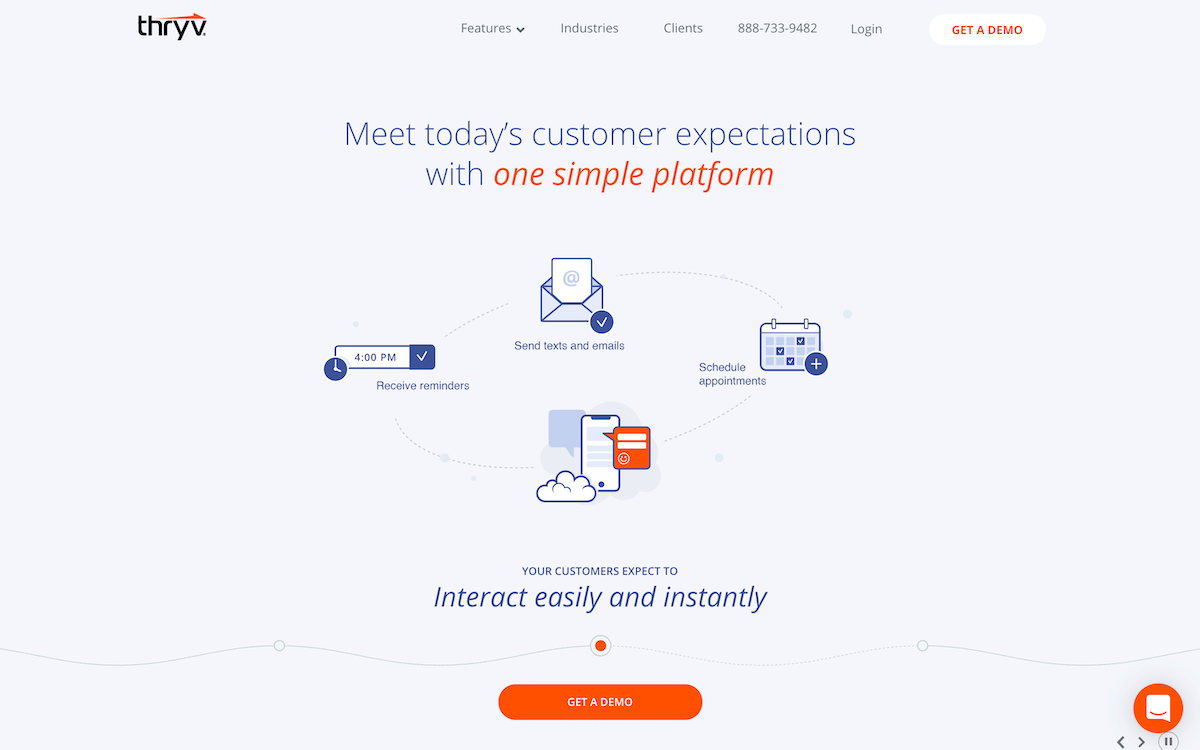
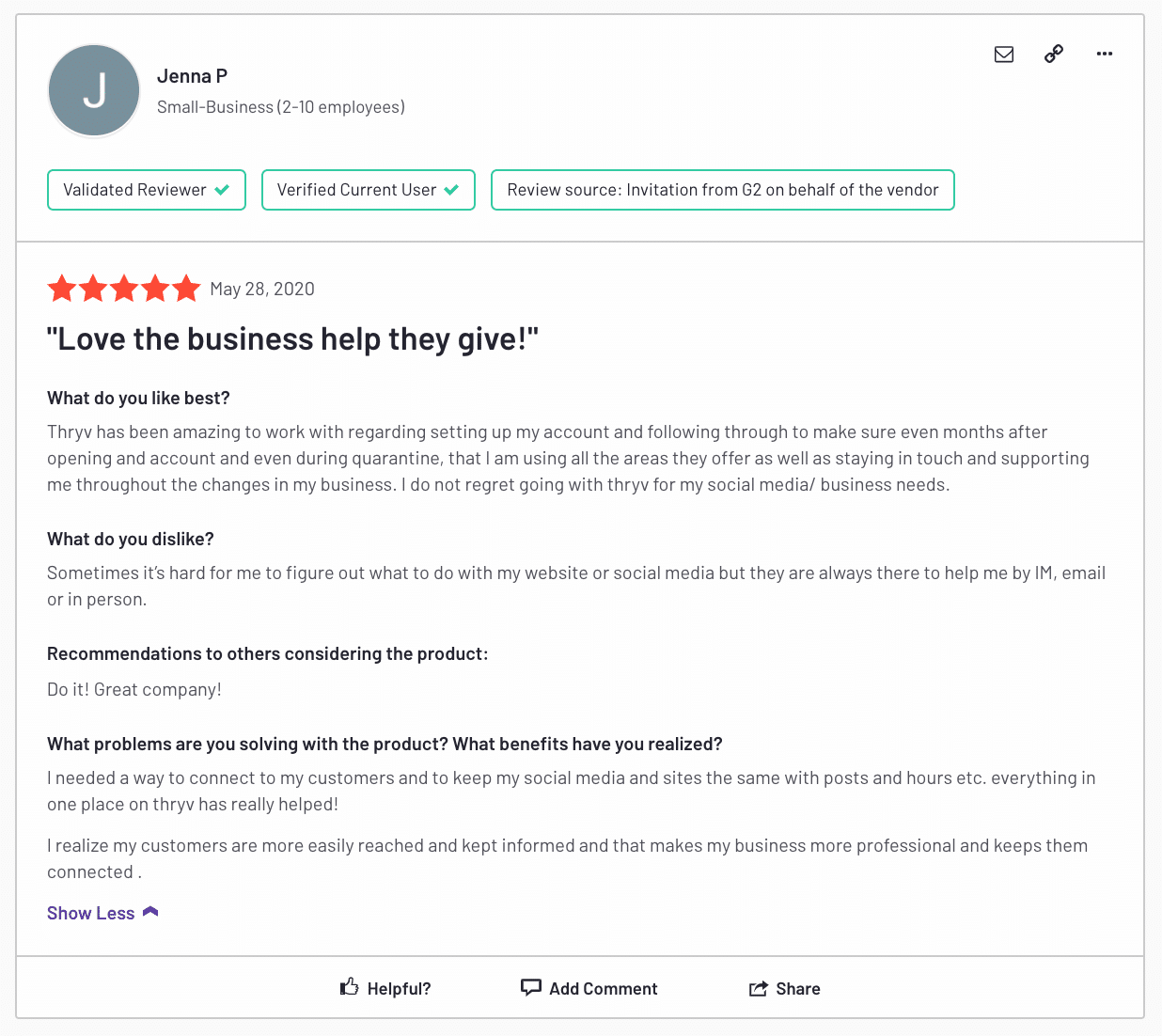
Pros + Cons
Thryv has worked hard to turn things around. It seems like they’ve finally found a niche that works. They’re focused on making things easier for small business customers who need help to manage multiple portions of their business.
Pros
- Thryv offers 24/7/365 customer support.
- Less expensive than other providers.
- Easy to move data between providers.
- A business-in-a-box application that's designed to manage multiple components of a local business.
Cons
- Their large software suite can be overwhelming for customers.
- Some customers state their emails to customers have been blocked by Gmail, AOL, Yahoo, AT&T, and others.
- No notification for major updates, changes often break landing pages and marketing campaigns.
- Relies on Yext to update and manage local listings and citations.
- Integrations are limited (i.e., Braintree, no Stripe) customers report they're unable to integrate with ERP or POS systems.
Vendasta
Vendasta is a white-label platform.
“Vendasta makes a white-label business-in-a-box platform for any company that provides advertising or marketing services to local businesses.”
This means agencies and resellers have access to digital marketing tools they can sell to their clients under their own brand. They’re used by large, well-known brands like Apartments.com, Yellow Pages, and EZ Local. They have more than 20,000 channel partners, and they serve more than two million small businesses.
They’re a jack of all trades kind of business, so they’re focused on a wide variety of products, each with their own set of features. Vendasta bills itself as:
“An all-in-one platform for marketing agencies, media groups, telcos, multi-location brands, technology platform providers, and financial companies looking for a one-stop-shop to sell and fulfill digital solutions for local businesses or quickly add new revenue streams while meeting their client’s needs.”
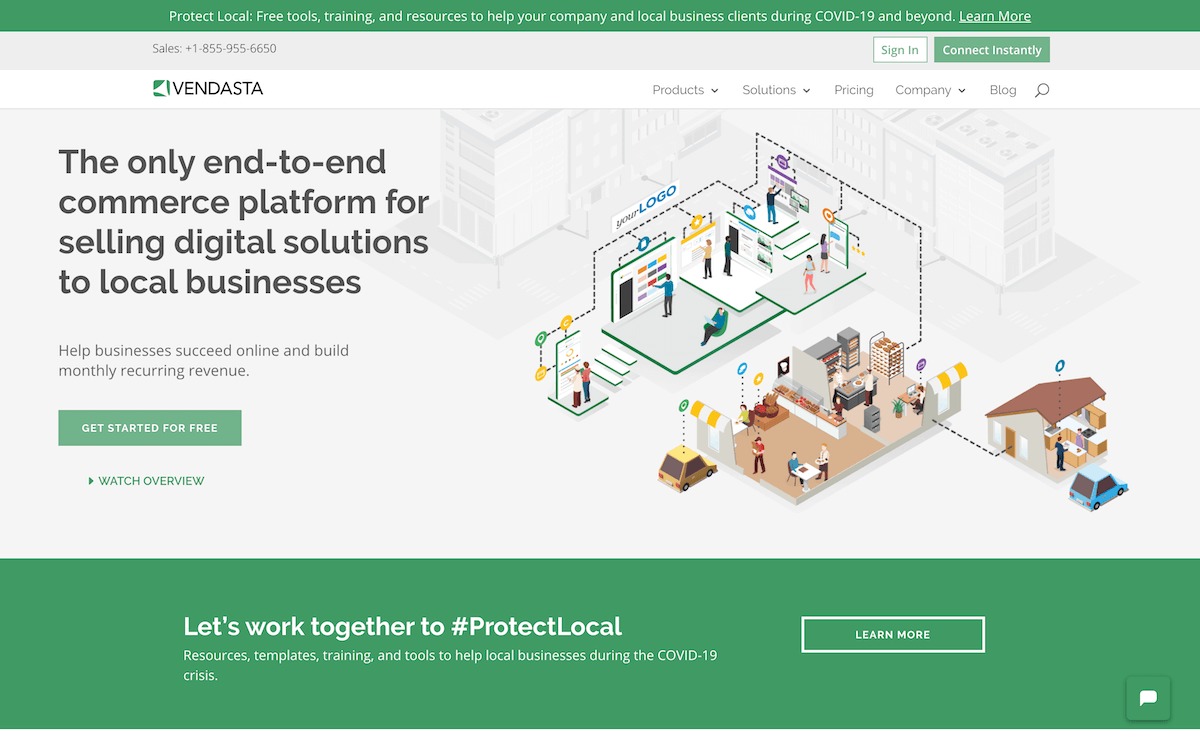
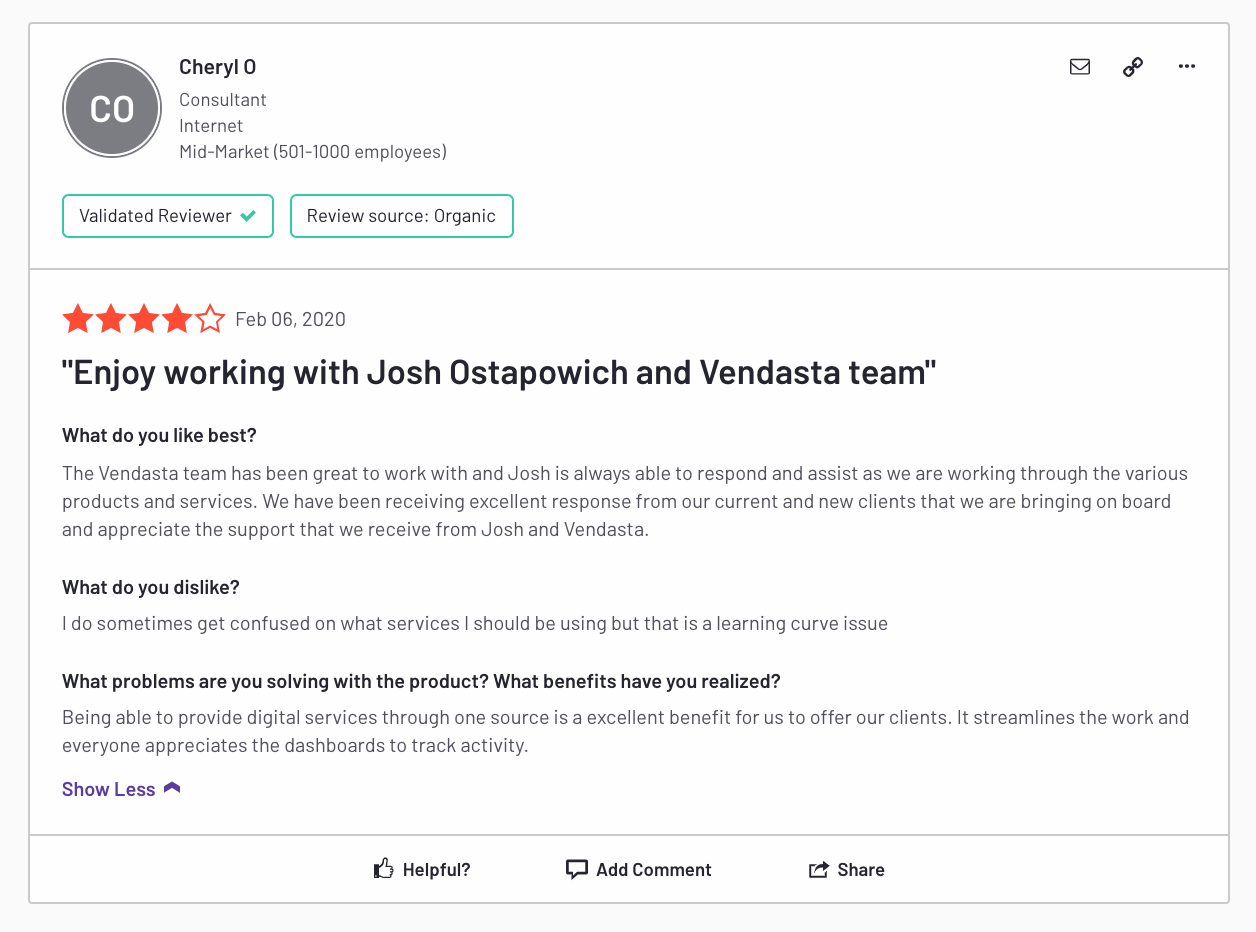
Pros + Cons
Vendasta provides agencies and resellers with resources needed to generate consistent recurring revenue. They’re a jack of all trades, so there’s a lot of opportunities available for agencies and resellers. The problem with their broad offering is the fact that none of their products drill deep into any particular specialty.
Pros
- Vendasta provides agencies and resellers the tools they need to launch or expand their business overnight. It's a good starting point for businesses that require specific tools to grow but lack the resources or know-how to develop their own.
Cons
- Requires an annual contract.
- Customer experience is a consistent concern for existing customers/reviewers.
- Their platform is broad but generic. Simple features that are standard (i.e., replying to reviews) are extras for Vendasta.
- Their platform is challenging to use, there's a lot to learn, and there's not much support.
Trustpilot
Trustpilot is all about reviews.
Founded in 2007, Trustpilot got its start as a consumer review platform. The reviews on their platform receive 3 billion views per month, and they receive 1.2 million new customer reviews every month. Trustpilot is among the 1% most popular websites in the world (Alexa rank 386, February 2020).
If you have a high volume business — restaurants, hospitality, product, and SaaS – their platform is ideal. Use it as a viable option to attract more customers via their review program.
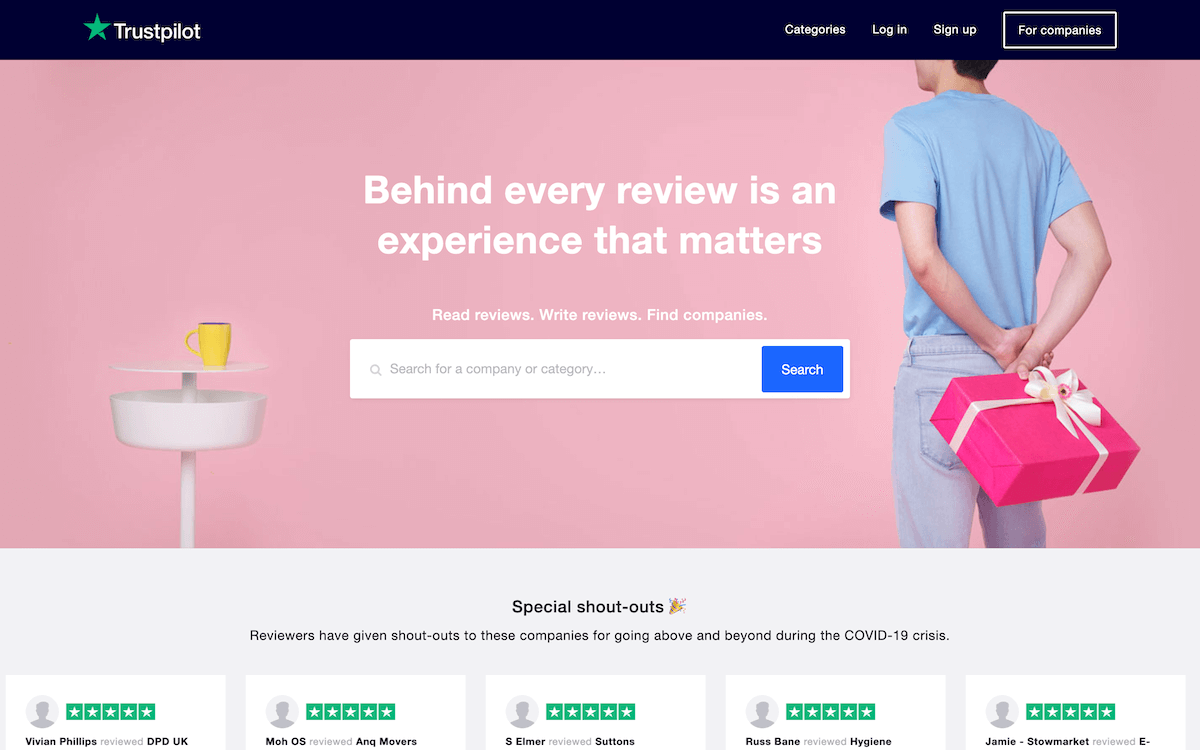
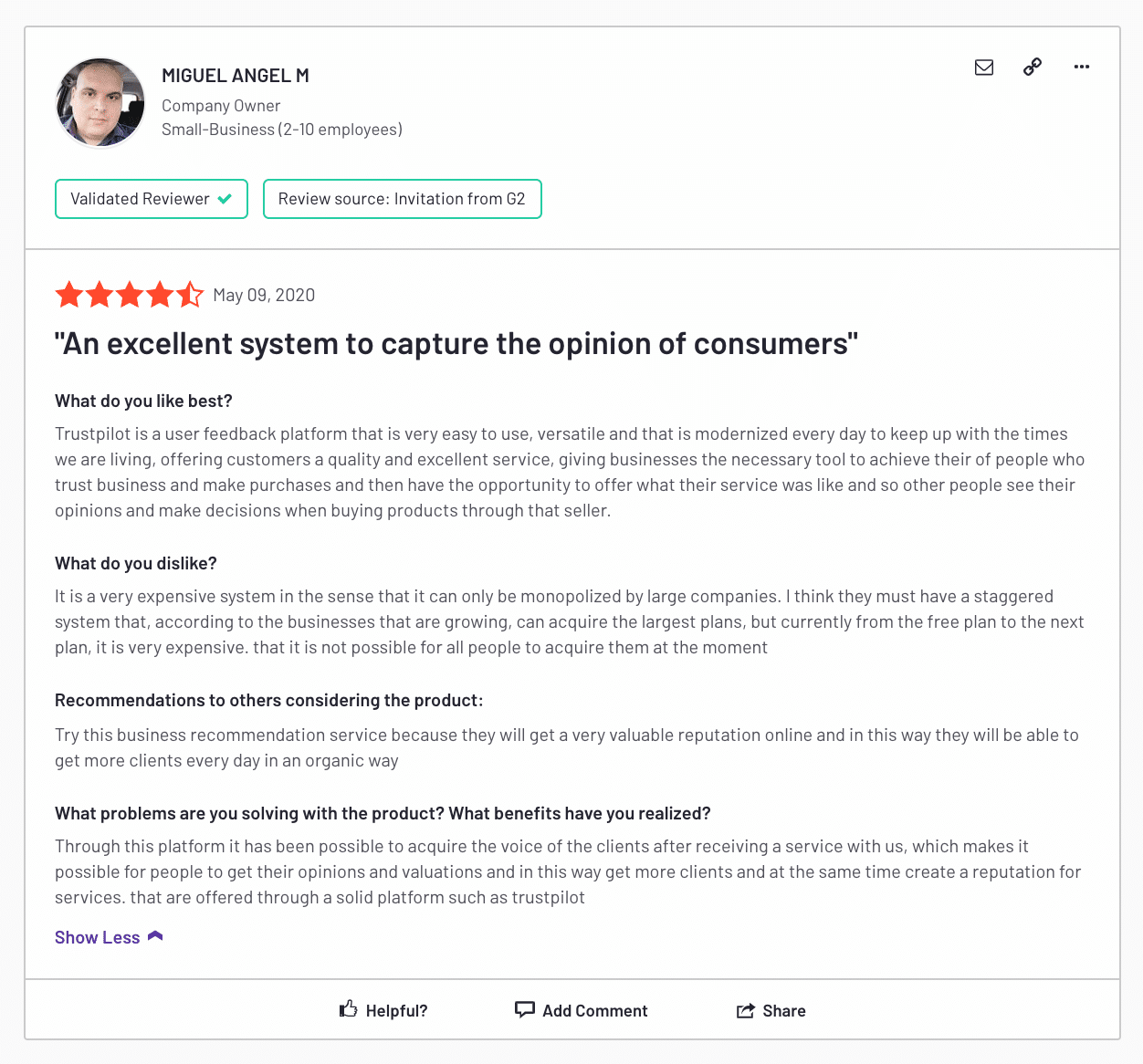
Pros + Cons
Trustpilot receives a significant amount of attention from consumers, yet it’s a platform many brands miss until they see customers reviewing their business on Trustpilot. Their product is designed entirely around their platform, so it’s a good idea to verify that it’s worth the trouble.
Pros
- Send 500 review request emails per mo. with their automated review invitation service (paid accounts only).
- Earn Google Seller Ratings. Google lists Trustpilot as a source for their seller ratings. Bing Product Ratings and Yahoo Merchant Reviews also rely on Trustpilot for reviews. This is an easy way to syndicate your reviews and boost the performance of your PPC ads, campaigns, and website conversion rates.
- Receive a dedicated customer care support rep who’s willing to help you improve your Trustpilot account and reviews you receive on their platform.
- Customer support is available via email, web, support center, chat, live onboarding, and callbacks.
- Showcase reviews in 8 Trustboxes widgets that you can use to promote reviews on your website, using reviews accumulated on Trustpilot as first and third-party reviews.
Cons
- Trustpilot's program is focused exclusively on its platform. They're a specialty provider that's focused on generating leads for their visitors.
Synup
Synup bills itself as a “next generation customer acquisition platform.” They’re a location intelligence tool that helps brands with local marketing, discovery, and engagement. They serve 173,000 customers across a diverse mix of industries. Many ORM and CX providers choose a specialty to focus on, e.g., enterprise. Synup chooses to focus on three customer groups — SMBs, agencies, and the enterprise.
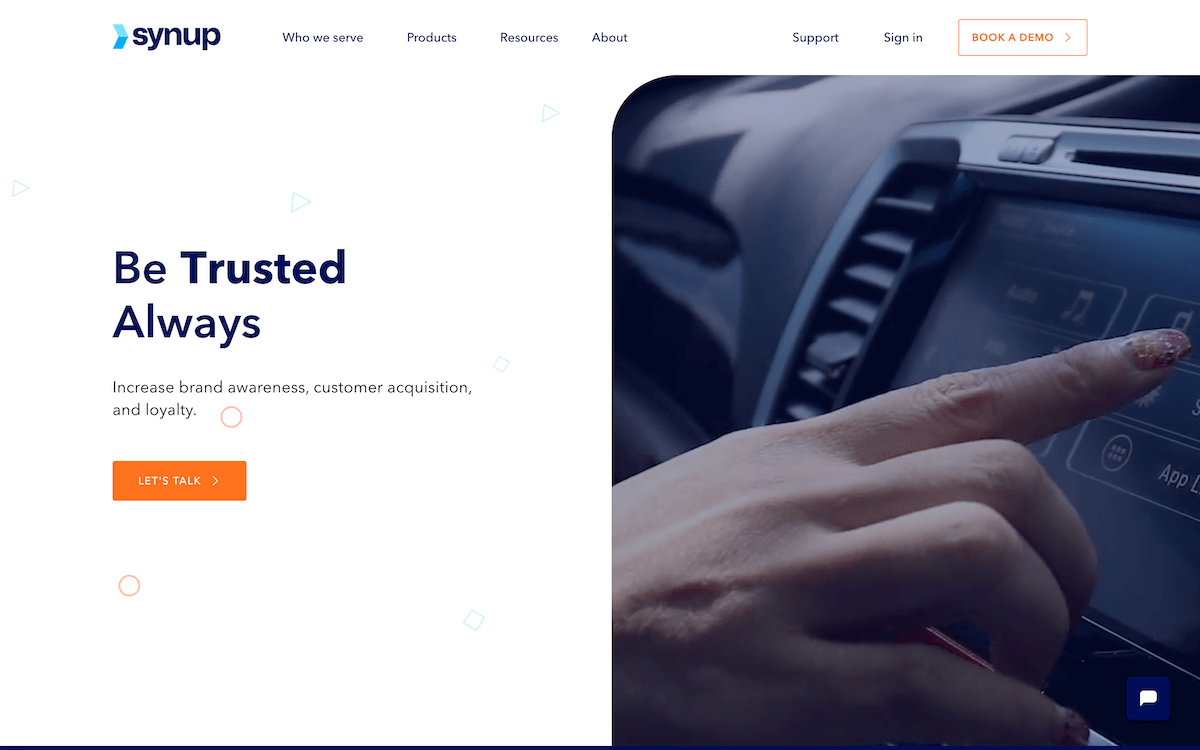
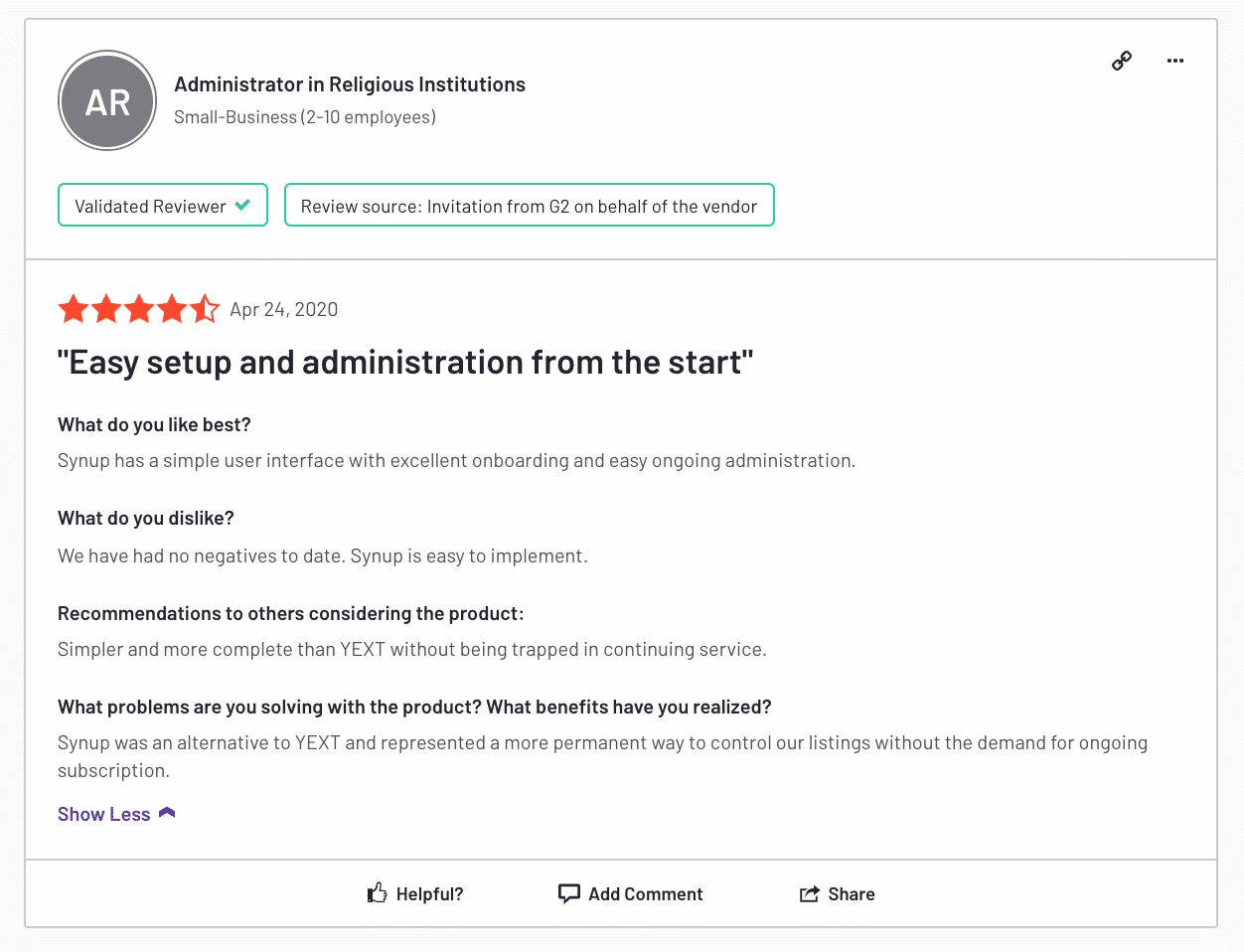
Pros + Cons
Synup provides brands with a stable platform they can use for their ORM and CX needs, but like other providers, they also have a white-labeled platform they make available to agencies. Agencies can resell Synup’s services at a price point they choose.
Pros
- Data diversity. Synup integrates with Google Analytics and tracks rankings.
- Comprehensive listings. Their listings management platform integrates with more than 200 sites.
- Provides immediate notifications for customer activity, e.g., leaving a review, comments, or feedback, etc.
- Provides reports on local searches, visits to business listings, reviews, and more.
- Duplicate suppression enables brands to merge, edit, or suppress business listing duplicates.
Cons
- Local-heavy platform that has lots of features for managing local listings, but their ORM offering is not as robust as other providers.
- Lack of strong differentiators. Synup's offerings are good, but they aren't specialists in any one particular area. Their platform is better suited towards generalists who are looking for a middle-of-the-road platform they can work with.
- Limited API or integrations data. Synup states they have a fully-featured API, but they don't provide public-facing data, documentation, or details you can use.
- Product features are unclear due to scarce data on their website or marketing materials. Customers aren't entirely sure what they're paying for ahead of time. This is by design, as Synup wants customers to request a demo.
There are lots of reputation management software options
Whether the focus is customer experience, review management, listings optimization, social listening, or all of the above, reputation matters. When it comes to reputation management software, there are plenty of alternatives to choose from. How do you decide what’s best for your business? You may focus on features, price, support, ease of use, or simply the fabric of the company culture. The important thing is to find what’s right for you.
If you’re looking for a reputation management platform, we recommend choosing the platform that’s obsessed with you, the customer. If they’re focused on your needs, they’ll provide you with the level of customization you need to ensure their platform is a fit for your business.
Whether you’re looking for local listings, review management, customer surveys, ticketing, chat, insights, or benchmarking — the platform needs to work for you.
We’ve done the digging for you, now you be the judge.

